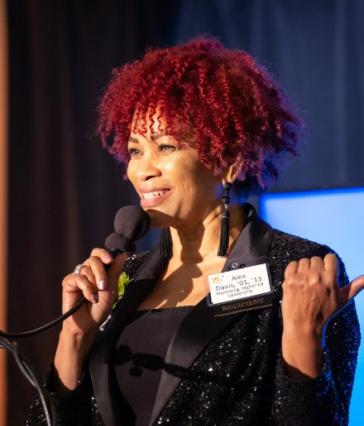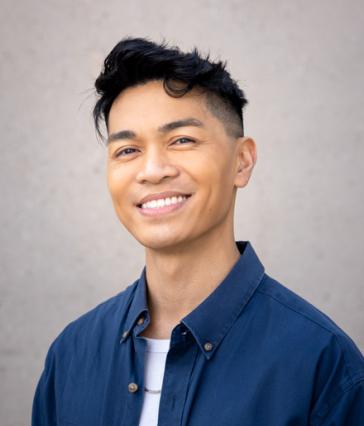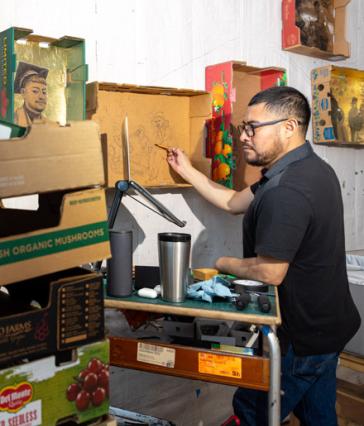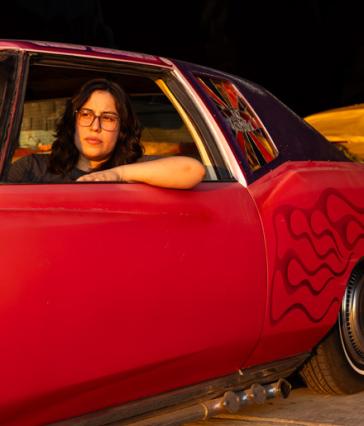Beach Voices: It's never too late to commit to sustainability and environmental justice
It wasn't until my last semester as an undergrad student at Cal State Long Beach when I started connecting the patterns between environmental racism, climate injustice and inequity.
I didn’t realize that my whole life, because of my demographic background — a Mexican immigrant, low income — I fell into the category of being in “the underserved community” and we lived sustainably as a way of life.
It was little things like taking the bus everywhere because we couldn’t afford a car — and there were seven of us in our household.
The more I learned, the more I realized that we were living sustainably out of necessity, reusing clothes, passing everything down, taking public transportation, recycling.
In some groups, it was almost seen like, “Oh, look how great of a person I am because I'm doing those things.”
I remember a few summers ago, my friends and I were going to the county fair and they were excited because if you took the bus, you got a free ticket to get in. I was already going to take the bus, because it was my only way to get there, and I remember they were sitting in the bus saying, “Oh my gosh, wow. These seats are so soft. This is so clean.” They were just amazed to be on a bus.
I thought to myself, “You guys didn't take a bus to school?” Their parents, their older siblings always took them to school and some of them had cars already.
I started asking more questions about what growing up was like for them, for people who are wealthier and have more resources available.
I became a CSULB sustainability fellow to learn more and to meet like-minded peers, but also to use the resources they're offering us to get more involved, to network and to participate.
My personal philosophy when it comes to sustainability and environmental justice: Investing in the community’s well-being is just as important as preserving the natural environment, as the loss of human potential is detrimental to the planet.
Recently, we did a toxic tour in Wilmington, and we saw the different disparities there.
The world is so much bigger than me. Everything is so interconnected.
We're running out of water.
Everything's on fire.
The air is polluted. Every time I go on a hike with someone in Long Beach, they tell me how they grew up with asthma because of the air pollution and all the exposure from the refineries and living next to the Alameda corridor.
But now I’m like, “OK, how do we fix it?”
I started thinking about green-space inequity and the lack of trees and native vegetation. And of the communities that are lined up right against the freeway: If you put trees there, it not only helps with the air, but it also blocks the noise and the kids have something pretty to look at.
Overall, it’s like nature's healing.
I found an internship through the city of Long Beach's Office of Climate Action & Sustainability. I’d go around with the office, and we’d plant trees in underserved neighborhoods throughout the city. We're focusing on neighborhoods on the West side, and we do monthly tree-planting events with schools and neighborhoods. We do planting events to restore native habitats.
Then, through a nonprofit group that I am involved with — East Yard Communities for Environmental Justice in Long Beach — we focus more on the policy advocate side, where we go to city council meetings and try to push forward legislation.
My takeaway?
It's never too late.
It's never too late to go back to school.
It's never too late to make a difference.
I'm almost 30 and I'm going to be graduating with 20-year-olds.
Every time I open the internet, it's like, oh, the planet’s on fire.
And I tell myself, “No, it's not too late.”
I can still make a difference; I can still do something even though I'm one person.
It'll trickle down. I'll make a difference.
Sustainability Fellow Angelica Cruz ‘24 is a candidate to receive her Master of Science degree in geographic information science (MSGIS) in the spring. Beach Voices is a feature that allows members of the Beach community — students, faculty, staff and alumni — to share their firsthand experiences. If you would like to be considered, email submissions labeled “Beach Voices” to Strategic Communications.

















